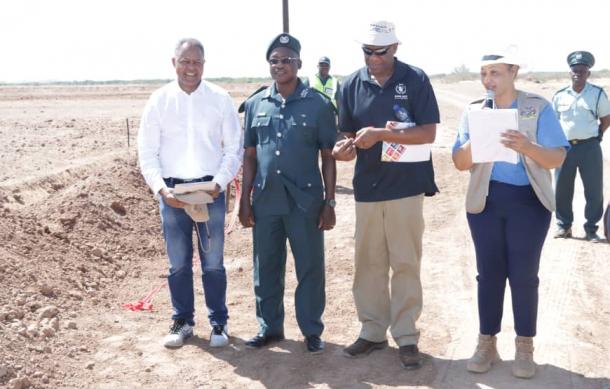
Namibia offers huge potential and opportunities to increase its agricultural productivity.
Dr Menghestab Haile, Regional Director of the United Nations World Food Programme (WFP), stated this at the launch of the Namibian Correctional Service's (NCS) integrated food production project at the Hardap Correctional Facility near Mariental.
Implemented in partnership with WFP and Impact for Africa S.p.A (IFA), the project supports the government's efforts to scale up domestic production, develop agricultural value chains, and improve socio-economic outcomes.
"What attracts me to come back here again, and again, and again to Namibia is the potential and opportunities that this country offers, and what I've seen today is actually the best example of a public-private partnership, where you have the private, you have the government, you have the Correctional Service, you have the UN, everyone working together. This is an example not only for Namibia, but this is an example we use for other countries as well."
The Commissioner General of the Namibian Correctional Service stressed the importance of partnerships to enhance the country's capacity to produce adequate food locally.
"I am proud to say that the collaboration between UN WFP and the NCS has been a step in the right direction, as evidenced by the following activities that have been carried out: First, the establishment of four hydroponics projects at four correctional facilities: Gobabis, Oluno, Walvisbay, and the Windhoek Female Correctional Facility; second, the donation of 8 metric tons of weed seeds, which is envisaged for planting in the coming season at Divundu, Evaristus Shikongo, and Hardap Correctional Facilities; third, the installation of a 10-hectare center-powered irrigation system at this facility, the Hardap Correctional Facility, equipped with 42 solar panels."
Also speaking at the occasion was WFP Country Director in Namibia, George Fedha.
"At the moment, as you all know, Namibia imports almost 60% of its food needs from outside Namibia, and so projects like this will help us start gradually reducing that dependency on importation and substituting it in the future with imports."





